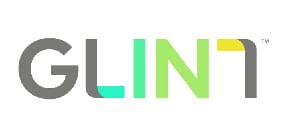
We’ve talked a lot about the global health crisis’ impact on the employee. Unfortunately, what we have sidelined a little is its impact on managers.
After all, the pandemic added new dilemmas for managers, who had to grapple with collapsing business models, furloughs, layoffs, shutdowns, and managing newly remote, hybrid, and flexible teams. What does HR data show us?
New research that combines 4 million global employee engagement surveys on the Glint People Success platform with LinkedIn behavioural and survey data throws an interesting spotlight onto how managers deal with this. You might think managers’ engagement would have suffered in 2020, but that’s not the case. Instead, employee engagement among managers rose by 5% between 2019 and 2020. In fact, employee engagement rose across all roles and levels in 2020. There are several ways to explain this unlikely rise during a tumultuous year. Likely factors include how many managers took on a new sense of purpose. As a result, they provided a critical link between the organisation and their teams during last year’s extremely challenging times.
Collaboration overload for managers?
As the pandemic wore on, even the most purpose-motivated managers started to feel the strain, however. Between Q1 and Q4 of 2020, manager burnout increased 78%: the number who watched the key LinkedIn Learning course “Managing Stress for Positive Change” grew seven times from 2019 to 2020.
“Heavy workload” was the most frequently cited issue, but managers also feel the weight of a wide range of expectations, with feelings of disconnection in second place. It’s becoming more and more clear that email overload and always-on working has frayed nerves here. The Harvard Business Review has raised the issue of “collaboration deluge” before the crisis. It estimated that average workers spent 80% of their time in meetings, chats, conversations, and responding to emails. The cost can be especially high for managers as they are buried by requests for input or advice, access to resources, or face time in meetings.
Glint data reflects an increase in Microsoft Teams chats and meeting activity between February and August 2020. A 48% increase in Teams chats per person overall, a 55% increase in the number of meetings and calls per week. The overnight shift to remote work highlighted the benefits of collaboration tools, but also underscores that guardrails are helpful, in particular for after-hours work. People need to maintain focused time for deep concentration. They also need the personal time that’s critical for wellbeing. Glint’s research shows too that many people are losing sleep. HR leaders need to help managers set effective boundaries between work and life responsibilities, while also serving as role models for their teams.
The personalised training that helps build skills
While managers face tough challenges, the good news is that technology is making it easier to support managers, particularly these three developments: employee feedback and collaboration pattern data are helping firms rethink the manager experience; AI is starting to guide people to what humans are best at; and personalised training is helping build skills—the number of managers using LinkedIn Learning grew by 102% from 2019 to 2020, with a 49% increase in learning hours per manager.
The data shows that the stress and struggles for managers in these unusual times have been immense. However, with the help of HR and HR technology, managers are rising to the challenge.
The author is Head of EMEA People Science at people success leader Glint, part of LinkedIn

























